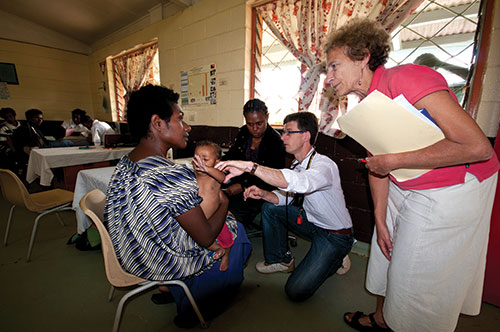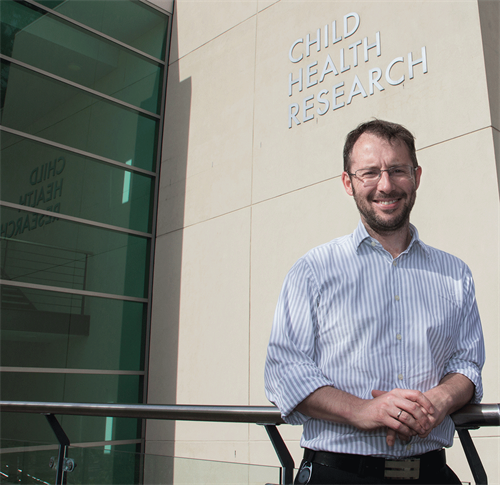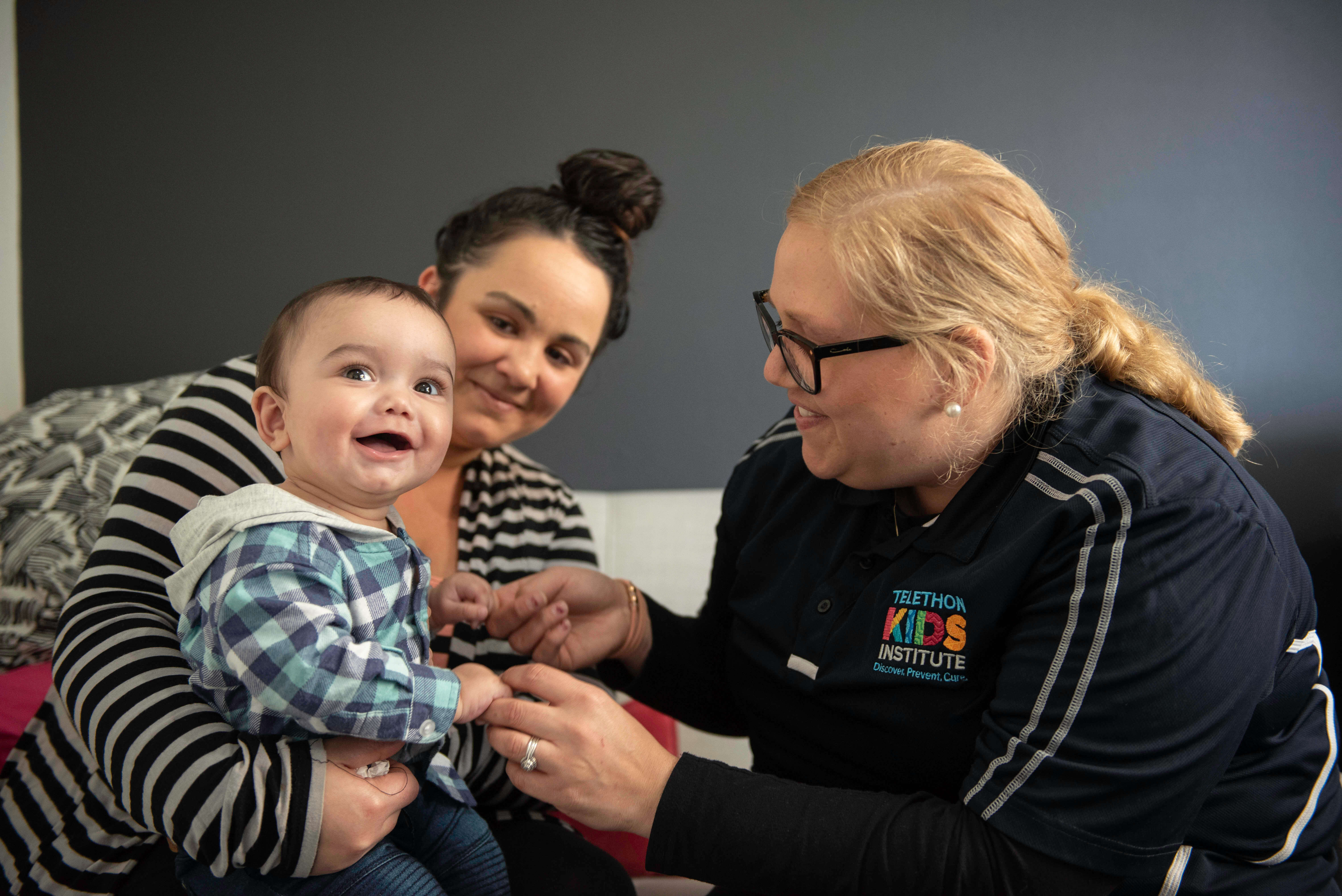Search

News & Events
Australian parents oblivious to true danger of the fluNew research investigating the devastating impact of the 2017 flu season by PAEDS-FluCAN, a national collaboration observing influenza in children, confirmed it was time to take action after thousands of children were hospitalised with the virus last year.

News & Events
The Kids Research Institute Australia researcher recognised for saving children in PNGClinical Associate Professor Deborah Lehmann has been recognised for her dedication to reducing the burden of infectious diseases in Papua New Guinea (PNG) with an award supporting research in the Western Pacific named in her honour.

News & Events
Institute celebrates eradication of rubella in AustraliaThe eradication of rubella in Australia is evidence of the vital role vaccinations play in protecting our health, researchers at The Kids Research Institute Australia say.

News & Events
Whooping cough vaccine could be a new weapon in the fight against food allergiesResearchers from The Kids Research Institute Australia and Curtin University will use a $3.9 million grant from the National Health and Medical Research Council to investigate whether a type of whooping cough vaccine could provide bonus protection against food allergies and eczema.

News & Events
Wesfarmers tops 2019 GivingLarge ReportThe major funder of the Wesfarmers Centre of Vaccines and Infectious Diseases based at The Kids Research Institute Australia has been recognised as Australia’s most generous giver.

News & Events
Australia’s first DNA-based COVID-19 vaccine study set to begin at The Kids Research Institute AustraliaAustralia’s first needle-free, gene-based COVID-19 vaccine study will be spear-headed in WA by The Kids Research Institute Australia thanks to almost $6 million in Coronavirus Research Response funding announced by Health Minister Greg Hunt.

News & Events
The Kids Research Institute Australia leader named finalist in nation’s top science prizesOne of Australia’s leading infectious disease experts, Associate Professor Asha Bowen, has been announced as a finalist for the country’s leading national science awards – the Australian Museum Eureka Prizes.
Research
Randomised controlled trials of behavioural nudges delivered through text messages to increase influenza and COVID-19 vaccines among pregnant women (the EPIC study): study protocolInfluenza and COVID-19 infections during pregnancy may have serious adverse consequences for women as well as their infants. However, uptake of influenza and COVID-19 vaccines during pregnancy remains suboptimal. This study aims to assess the effectiveness of a multi-component nudge intervention to improve influenza and COVID-19 vaccine uptake among pregnant women.
Research
Influenza and pertussis vaccine coverage in pregnancy in Australia, 2016-2021Vaccination in pregnancy is the best strategy to reduce complications from influenza or pertussis infection in infants who are too young to be protected directly from vaccination. Pregnant women are also at risk of influenza complications preventable through antenatal vaccination. Both vaccines are funded under the National Immunisation Program for pregnant women in Australia, but coverage is not routinely reported nationally.
Research
The effectiveness of maternal pertussis vaccination for protecting Aboriginal and Torres Strait Islander infants against infection, 2012–2017: a retrospective cohort studyTo evaluate the effectiveness of maternal pertussis vaccination for preventing pertussis infections in Aboriginal and Torres Strait Islander infants under seven months of age.
